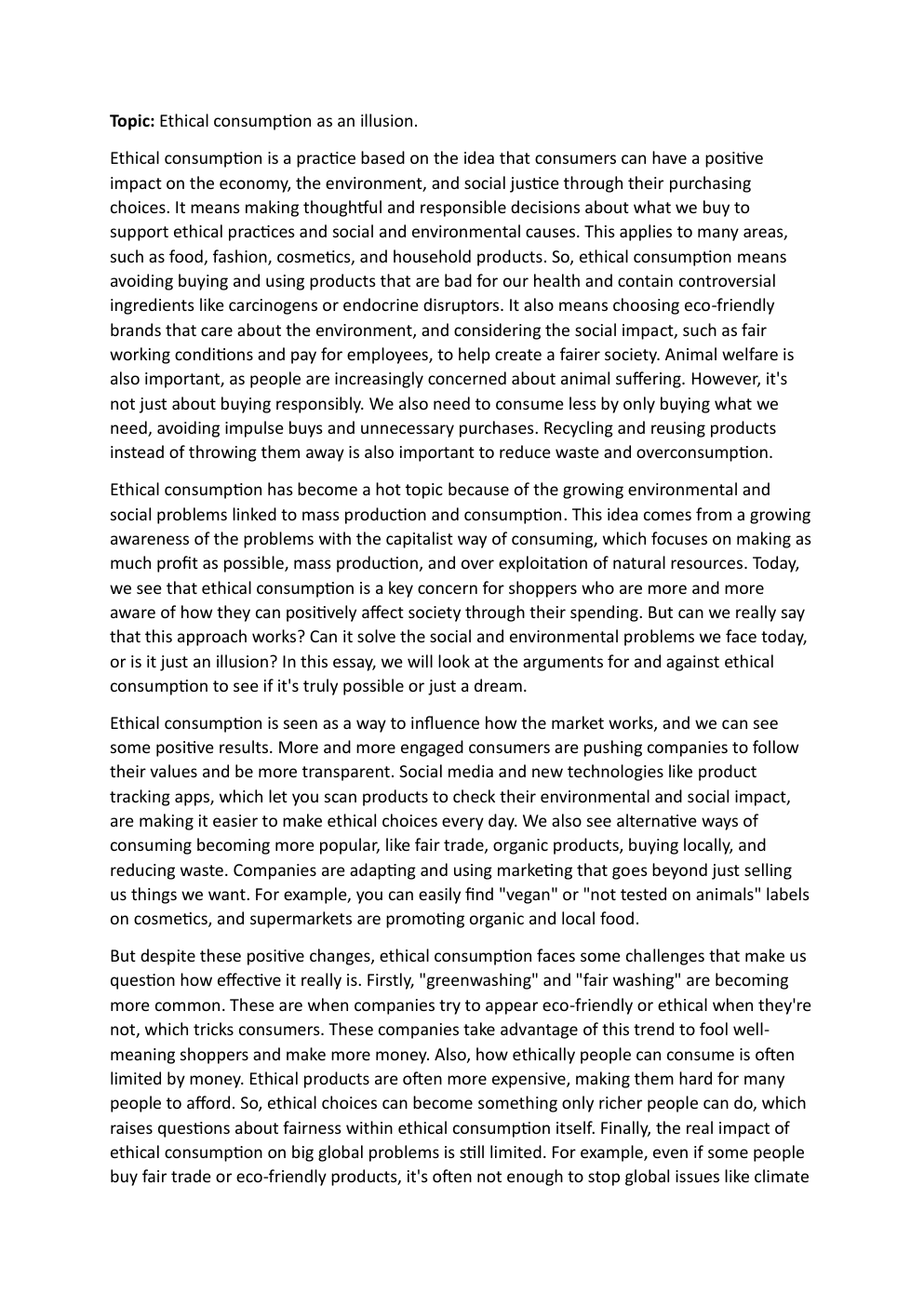Topic: Ethical consumption as an illusion.
Publié le 13/01/2025
Extrait du document
«
Topic: Ethical consumption as an illusion.
Ethical consumption is a practice based on the idea that consumers can have a positive
impact on the economy, the environment, and social justice through their purchasing
choices.
It means making thoughtful and responsible decisions about what we buy to
support ethical practices and social and environmental causes.
This applies to many areas,
such as food, fashion, cosmetics, and household products.
So, ethical consumption means
avoiding buying and using products that are bad for our health and contain controversial
ingredients like carcinogens or endocrine disruptors.
It also means choosing eco-friendly
brands that care about the environment, and considering the social impact, such as fair
working conditions and pay for employees, to help create a fairer society.
Animal welfare is
also important, as people are increasingly concerned about animal suffering.
However, it's
not just about buying responsibly.
We also need to consume less by only buying what we
need, avoiding impulse buys and unnecessary purchases.
Recycling and reusing products
instead of throwing them away is also important to reduce waste and overconsumption.
Ethical consumption has become a hot topic because of the growing environmental and
social problems linked to mass production and consumption.
This idea comes from a growing
awareness of the problems with the capitalist way of consuming, which focuses on making as
much profit as possible, mass production, and over exploitation of natural resources.
Today,
we see that ethical consumption is a key concern for shoppers who are more and more
aware of how they can positively affect society through their spending.
But can we really say
that this approach works? Can it solve the social and environmental problems we face today,
or is it just an illusion? In this essay, we will look at the arguments for and against ethical
consumption to see if it's truly possible or just a dream.
Ethical consumption is seen as a way to influence how the market works, and we can see
some positive results.
More and more engaged consumers are pushing companies to....
»
↓↓↓ APERÇU DU DOCUMENT ↓↓↓
Liens utiles
- Explication de texte Freud (extrait du chapitre 6) "L’avenir d’une illusion » 1927
- la religion est-elle une illusion?
- L'ILLUSION (résumé)
- Une illusion des sens est-elle une preuve que les sens sont trompeurs ?
- Corrigé Commentaire de texte L’Illusion comique, Corneille, 1634


